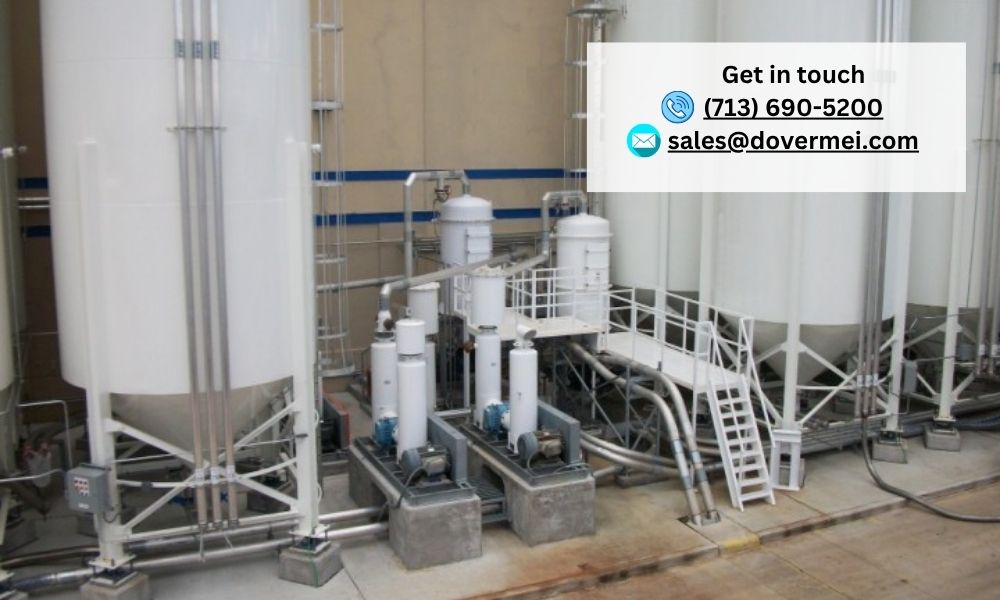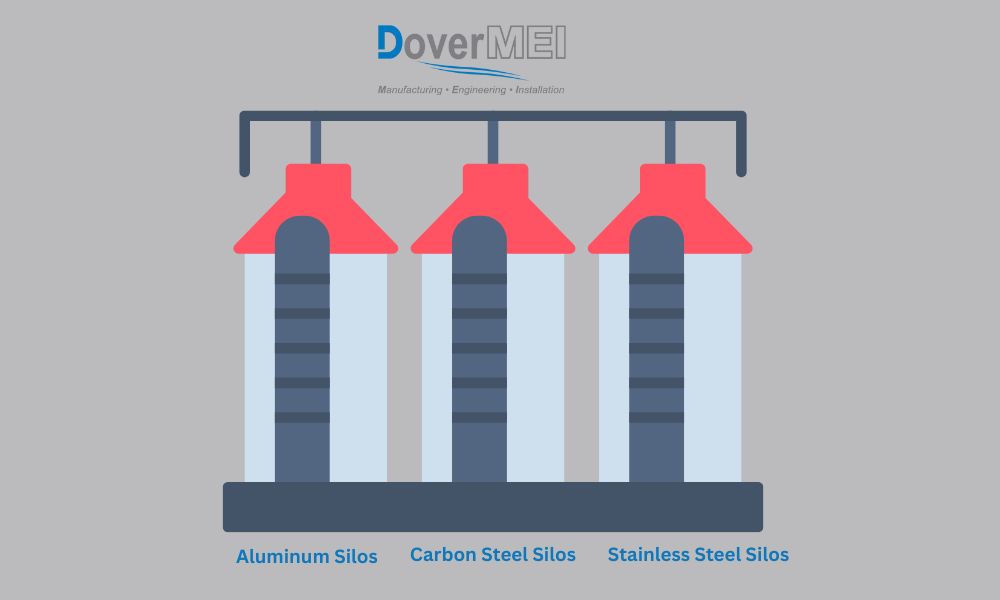In the fast-paced and quality-sensitive plastics industry, managing the storage and handling of bulk materials like plastic pellets and resins is critical to ensuring production consistency, minimizing waste, and maintaining safety. Silo storage has become a cornerstone for facilities that need to store large quantities of plastic raw materials while optimizing operational flow and cost efficiency.
Understanding the Role of Silo Storage in Plastic Manufacturing
Silo storage systems are designed to handle bulk quantities of thermoplastic materials including polyethylene (PE), polypropylene (PP), polystyrene (PS), and engineered resins. These materials are delivered via railcars or bulk trucks and stored in vertical silos before being conveyed to processing equipment like extruders, injection molders, or blow molders.
Using silos instead of bagged or boxed storage offers a cleaner, safer, and more cost-effective solution. Silos reduce manual labor, minimize contamination risks, and enable automated material handling.
Types of Silos for Plastic Pellets and Resins
Aluminum Silos
Aluminum is lightweight, corrosion-resistant, and non-sparking, making it a preferred material for plastic pellet storage. These silos are ideal for facilities located in humid environments or where high hygiene standards are required.
Carbon Steel Silos
Steel silos are rugged and suitable for high-volume facilities. While more prone to corrosion than aluminum, proper coatings or galvanization can extend their lifespan significantly.
Stainless Steel Silos
Used when specialty resins or high-purity plastics are involved, stainless steel offers superior protection against contamination, corrosion, and chemical degradation.
Key Components of an Efficient Silo System
Pneumatic Conveying Systems
Silos typically integrate with pneumatic conveying systems that move plastic pellets from delivery vehicles to storage silos and from silos to processing equipment. These systems are sealed, minimizing contamination and product loss.
Level Sensors and Inventory Control
Modern silos use radar or ultrasonic level sensors to monitor fill levels. This data feeds into an inventory management system, ensuring production never halts due to raw material shortages.
Dust Collection and Venting
Although plastic pellets do not generate fine dust like powders, pellet attrition can create fines that need proper venting and filtering. Vent filters and dust collectors are essential for maintaining air quality and ensuring compliance with OSHA standards.
Discharge Systems
Silo bottoms are fitted with mass flow or funnel flow discharge designs. Mass flow ensures uniform material discharge, while funnel flow may be more cost-effective but risks material stagnation. Rotary valves and slide gates are common components for controlled discharge.
Advantages of Silo Storage for Plastic Facilities
Space Optimization
Vertical silos make use of upward space, freeing up valuable production floor area. Compared to boxed or bagged material storage, silos reduce clutter and improve workplace safety.
Enhanced Material Quality
Closed-loop systems protect sensitive resins from moisture and contamination. This is particularly important for hygroscopic materials like nylon or PET, which degrade when exposed to ambient humidity.
Reduced Labor and Handling Costs
Automated material delivery from silos to machines reduces manual labor, pallet movements, and the risks associated with forklift use. This not only cuts labor costs but also improves workplace safety.
Lower Transportation and Packaging Costs
Purchasing plastic materials in bulk for silo storage eliminates the need for costly packaging like gaylord boxes, bags, or drums. Bulk deliveries reduce fuel costs and carbon footprint.
Cleaner, Safer Operations
With silo systems in place, plastic facilities benefit from dust-free, spill-free, and low-maintenance material handling. This is essential for meeting GMP (Good Manufacturing Practices) in medical and food-grade plastics.
Design Considerations for Silo Storage Systems
Sizing and Capacity
Silo capacity must align with your production throughput and delivery frequency. Undersized silos lead to frequent refills, while oversized silos may cause material degradation due to prolonged storage.
Flow Characteristics
Understanding material flow is essential. Some resins may bridge or rathole due to static charges or irregular particle shapes. Engineering the right hopper angle and flow aid devices like vibrators or air pads is crucial.
Temperature Control
In certain regions or with temperature-sensitive plastics, insulating the silo or incorporating cooling systems may be necessary to maintain resin quality.
Grounding and Static Control
Plastic pellets generate static electricity during conveying. Proper grounding systems, conductive piping, and explosion-proof equipment are essential to mitigate fire hazards.
Integrating Silo Storage with Plant Automation
Silo storage can be fully integrated into a plant’s automation and control architecture. PLC systems, SCADA interfaces, and IoT connectivity provide real-time monitoring of material levels, flow rates, and system diagnostics.
This integration supports:
- Predictive maintenance
- Inventory alerts
- Batch traceability
- Remote troubleshooting
By streamlining data from silos to ERP systems, plant managers gain full visibility into material usage and supply chain logistics.
Environmental Benefits of Silo Storage in the Plastics Sector
Waste Reduction
Bulk handling reduces secondary packaging waste. Less bag waste means less landfill usage and a more sustainable footprint.
Lower Emissions
Fewer delivery trucks and forklift trips reduce greenhouse gas emissions. Closed-loop systems also minimize pellet loss—protecting waterways from plastic pollution.
Compliance with Green Manufacturing Initiatives
Silos support zero-waste and energy-efficient goals that many companies now strive for. They can be a pivotal part of a facility’s LEED certification or ISO 14001 compliance efforts.
Industries and Applications That Rely on Silo Storage for Plastics
- Automotive component manufacturers
- Packaging and bottle production
- Consumer goods and electronics casings
- Medical device and pharmaceutical packaging
- Textile and fiber producers
Each of these sectors demands high throughput, material purity, and reliable supply—making silo storage a critical infrastructure investment.
Why Partner with DoverMEI for Your Silo Storage Needs
At DoverMEI, we specialize in designing, fabricating, and installing custom-engineered silo storage systems for the plastics industry. Our solutions are built to deliver performance, cleanliness, and reliability across diverse applications.
With decades of experience in bulk material handling, our engineers work closely with your team to:
- Analyze material flow and site layout
- Design silos to your exact capacity and structural requirements
- Integrate pneumatic conveying and automation systems
- Ensure code compliance and safety throughout
Whether you’re expanding capacity or upgrading existing systems, DoverMEI delivers turnkey solutions backed by expert support.


